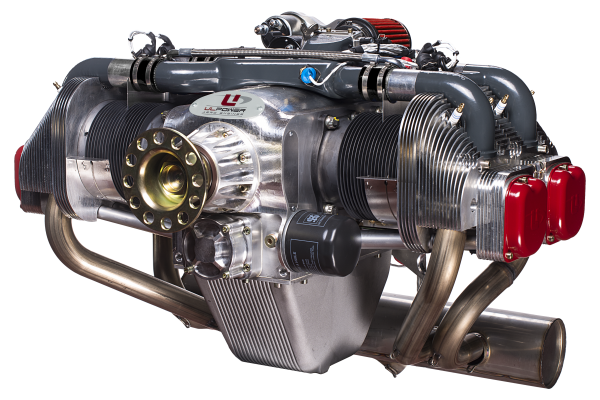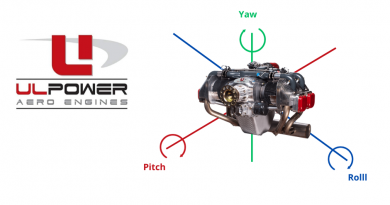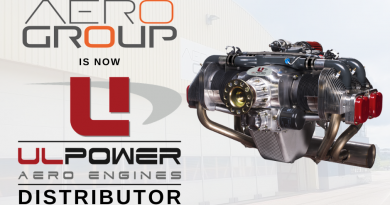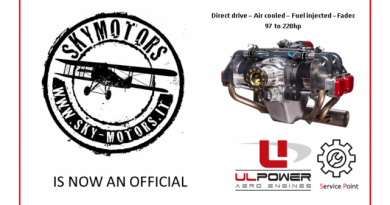Protect your engine in times of Covid-19 confinement.
Due to the COVID 19 (Coronavirus) pandemic, we are all experiencing various challenges which change our every-day life. The team here at ULPower Aero Engines headquarters want to reassure you that we are still in full production and we are ready to ship spare parts to those who want upgrade / maintain their engine during this downtime .
Unfortunately, in many countries, recreational aviation has been classified as a ‘non-essential’ activity, resulting in effective grounding of many aircraft for weeks or possibly months.
If you are unable to ground run your engine to operational temperatures from time-to-time (ideally at least once per month), we kindly remind you to follow the guidance offered in our operations manual. We recommend the following procedures to protect the engine against corrosion in case of extended out-of-service periods. This treatment is even more highly recommended when having flown on Avgas before the confinement.
– Let engine run until warm, then change oil
– Remove the air inlet filter and insert approx. 30 cm3 (1 Fl oz) of corrosion inhibiting oil (fogging oil) into the inlet collector with the engine
running at increased idle speed
– Shut off engine
– Close all openings on the cold engine, like exhaust end pipe, air intake (throttle), venting tube.
– Spray all steel external engine pars with corrosion inhibiting oil
-Disconnect battery
– Store the engine as dry as possible
As we look forwards to better times, we would like to take this opportunity to remind of you of some essential things before your first flight after any prolonged non-flying period.
If you have performed the above storage actions, you must first remove any items used to close off openings and wipe off any surface treatments as may be applicable.
GENERAL CONDITION:
As per your airframe manufacturer or POH, a general condition inspection is standard operating procedure before start-up. However, it may be a good idea to remove the engine cowling and carry out a full condition check on your engine after a long idle period. Check for leaves, and other debris such as insect, spider, bird and other animal nests, as well as accumulations of dirt or leaks of fluids. Check all wiring is well attached and look for signs of wear or breaks as well as corrosion at the various terminals; battery, starter, etc. Check all lines (fuel and oil) are well attached, in good condition and free of kinks and leaks.
AIR FILTER:
Even if your aircraft has not been stored in a dusty environment the air filter may have a layer of dust on it. Therefore, it should be inspected and if necessary changed prior to engine start.
FUEL:
Make sure that you carry out a ‘larger volume than normal’ fuel drain and check for water/moisture and debris in the drain fluids. Condensation (particularly over time) may result in water in the drain sumps.
It is strongly advised to replenish old fuel prior to engine-start after a long period of non-running – particularly if you have laid up the aircraft on ‘winter fuel’ MoGAS. As we all know, a major factor in fuel quality is determined by an octane rating. Long term storage may result in a drop in octane level, related fuel quality and with it an increased risk of knocking, spluttering and even clogged injectors. If in doubt, change it out.
We recommend pressuring the fuel system, with cowls off, and checking for leaks before first start.
BATTERY:
To ensure an easy first start, check your battery condition. Be sure the battery is fully charged before start-up with an output voltage of AT LEAST 12.5 V DC
NOTE: NEVER use a “booster” (quick battery charger) to start the engine – just make sure your battery is in good condition.
If the engine does not turn over swiftly, do not run the battery down – charge it or change it before trying again. If fully charged and still an issue – check the wiring again (particularly for corrosion and contact at the terminals)
OTHER:
Along with all the other airframe checks, do check behind your instrument panel for any insect or animal damage, for loose wires, etc as well as that all switches are smooth and operational before you return to the skies.
Contact your local ULPower dealer for filters, plugs, and other spares that you might need in preparedness for your return to the skies.
We look forward to a corana-free time in which we can all enjoy the freedom and pleasures of our ULPowered aircraft again.
In the meantime, stay safe & healthy!



